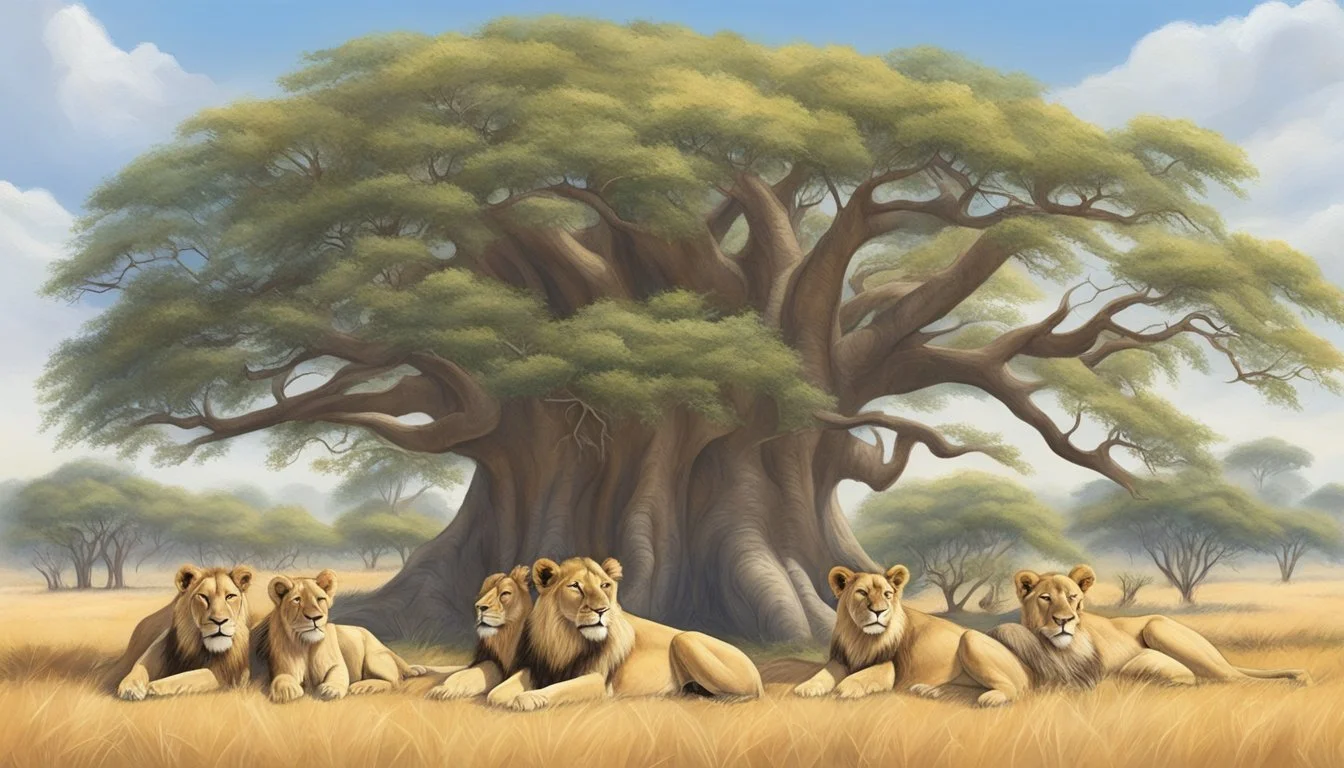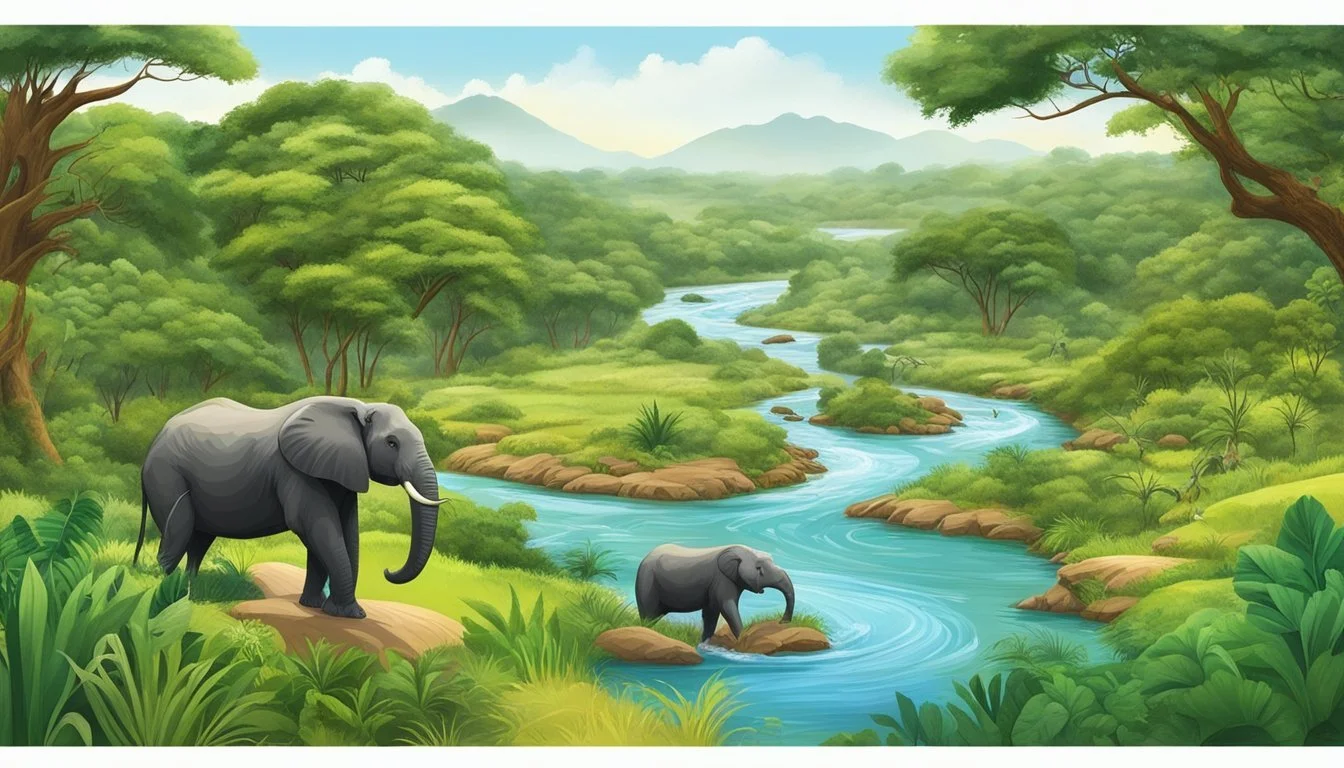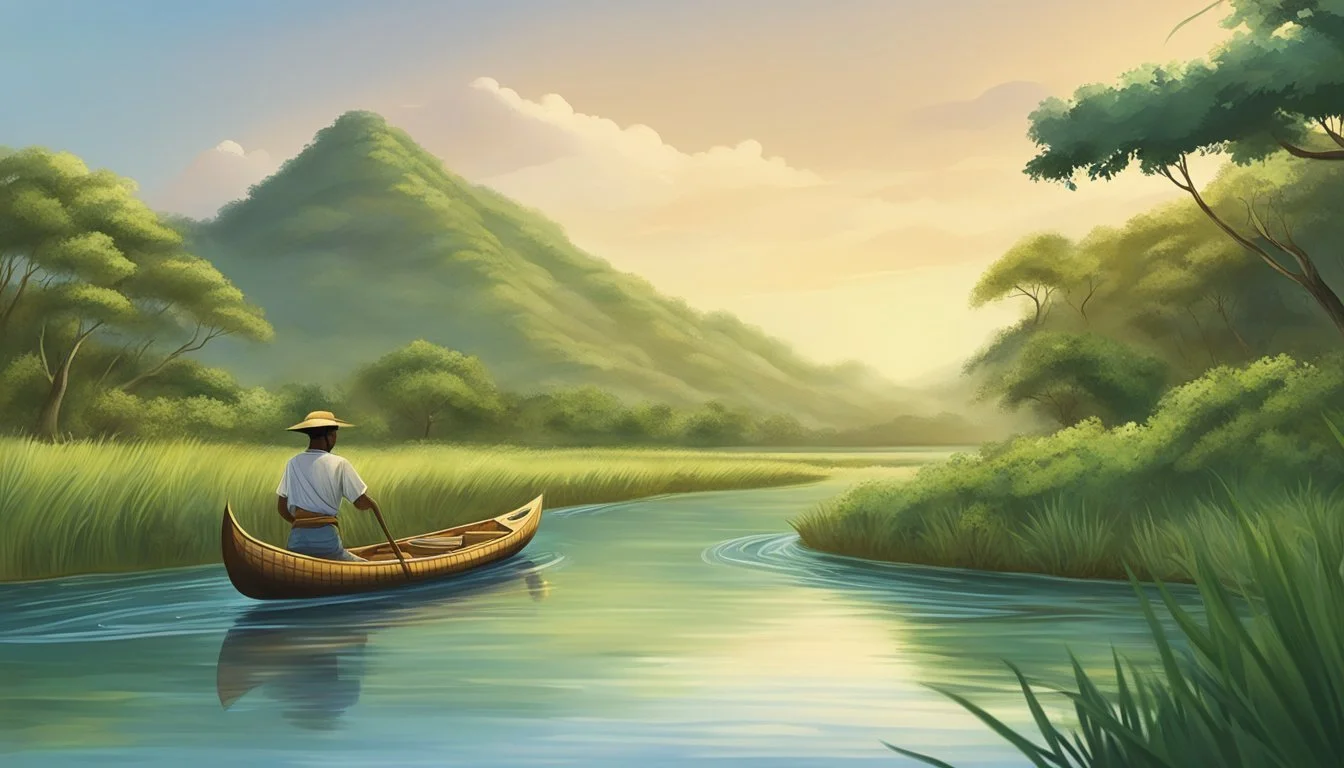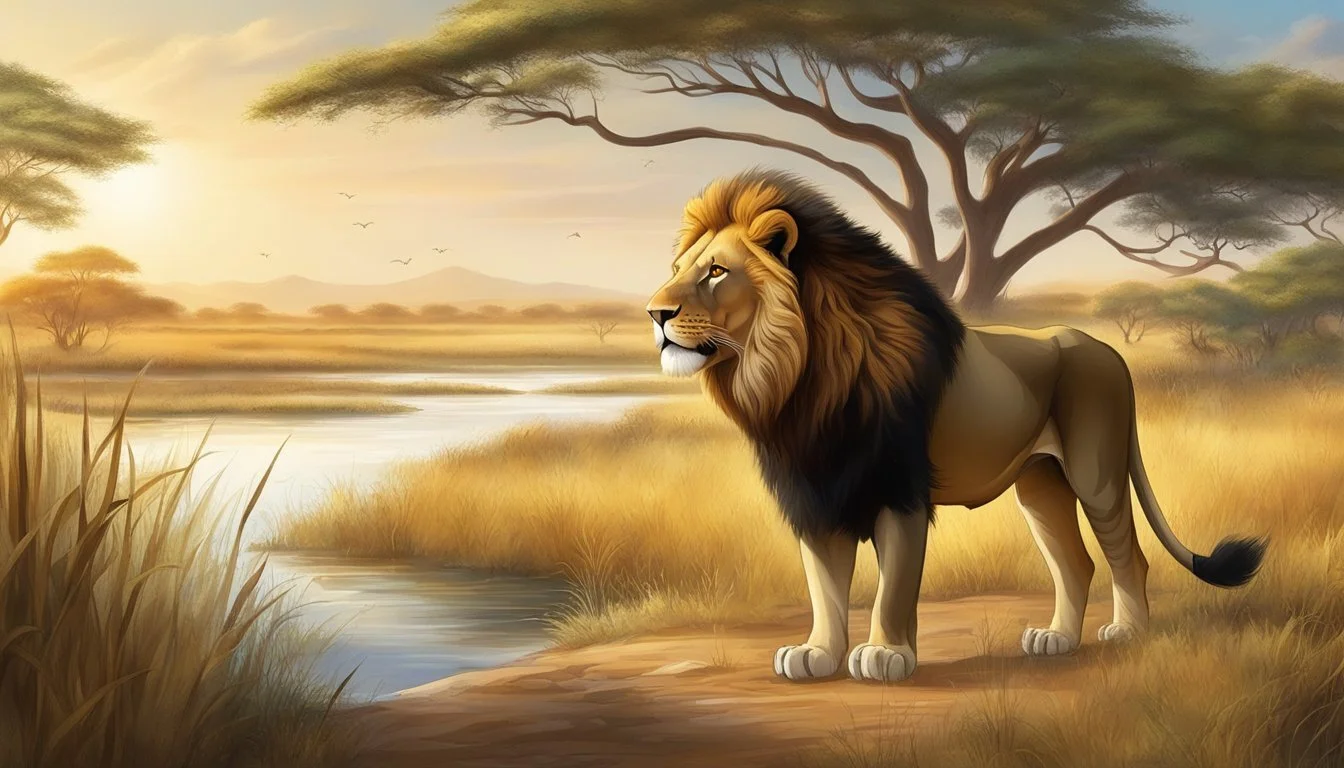6 Must-Watch Documentaries on Zambia
Exploring the Heart of Africa
Zambia, a landlocked country in southern Africa, has a rich history and vibrant culture that captivates many. From its struggle for independence to its diverse wildlife and natural wonders, there are countless stories waiting to be told about this nation.
Documentaries offer a powerful medium to explore Zambia's past, present, and future, providing viewers with unique insights into the country's challenges and triumphs. These films showcase the resilience of the Zambian people, the beauty of its landscapes, and the complex social and political issues that shape the nation today.
1) "Secrets of the Luangwa" - National Geographic
This National Geographic documentary unveils the hidden wonders of Zambia's Luangwa Valley. The film captures the diverse wildlife and breathtaking landscapes of this remote region.
Viewers are treated to stunning footage of elephants, lions, and hippos in their natural habitat. The documentary also showcases the valley's unique ecosystem and its importance to the local wildlife.
Expert cinematographers employ cutting-edge technology to reveal rarely seen animal behaviors. Night vision cameras provide an intimate look at nocturnal creatures, while aerial shots showcase the valley's vast expanse.
The film explores the challenges faced by Luangwa's animals, including drought and human encroachment. It highlights conservation efforts aimed at protecting this fragile ecosystem.
"Secrets of the Luangwa" offers viewers a captivating journey through one of Africa's most pristine wilderness areas. The documentary's blend of education and entertainment makes it a must-watch for nature enthusiasts and casual viewers alike.
2) "Zambezi" - BBC Earth
"Zambezi" is a captivating BBC Earth documentary series that explores the majestic Zambezi River. This four-part series takes viewers on an extraordinary journey along Africa's fourth-longest river, spanning over 2,000 miles from its source in Zambia to the Indian Ocean.
The documentary showcases the diverse ecosystems and wildlife that thrive along the Zambezi's banks. Viewers can expect to see a wide array of animals, including elephants, hippos, crocodiles, and various bird species.
"Zambezi" also highlights the river's importance to local communities. It examines how people living near the river rely on it for their livelihoods, transportation, and cultural practices.
The series features stunning cinematography, capturing the river's power and beauty. From the thundering Victoria Falls to the tranquil floodplains, each episode reveals different aspects of the Zambezi's character.
BBC Earth's reputation for high-quality nature documentaries shines through in this production. The series combines informative narration with breathtaking visuals, offering viewers an immersive experience of one of Africa's most significant waterways.
3) "Faces of Africa: The Tonga Dugout"
"Faces of Africa: The Tonga Dugout" offers a captivating glimpse into the lives of the Tonga people in Zambia. This documentary focuses on their traditional way of life along the Zambezi River.
The film showcases the Tonga's unique cultural practices and their deep connection to the waterways. It explores their fishing techniques and the importance of dugout canoes in their daily lives.
Viewers are introduced to skilled craftsmen who create these essential vessels using age-old methods. The documentary highlights the process of selecting the right tree and the meticulous carving required to shape the canoe.
The Tonga's resilience in the face of changing times is a central theme. The film examines how they balance traditional practices with modern influences encroaching on their way of life.
Stunning cinematography captures the beauty of the Zambezi River and the surrounding landscape. Interviews with Tonga elders provide valuable insights into their history and cultural significance.
This documentary serves as an important record of a unique aspect of Zambian culture. It brings attention to the challenges faced by the Tonga people in preserving their heritage.
4) "Enchanted Kingdom: The Kafue Chronicles"
"Enchanted Kingdom: The Kafue Chronicles" offers viewers a captivating journey through Zambia's largest national park. This documentary showcases the diverse wildlife and stunning landscapes of Kafue National Park.
Filmed over the course of two years, the production team captured rare moments in the lives of various animal species. The film highlights the park's unique ecosystems, from sprawling grasslands to lush forests.
Viewers can expect to see intimate scenes of elephants, lions, and leopards in their natural habitats. The documentary also features lesser-known creatures like the serval and the pangolin.
"Enchanted Kingdom" employs cutting-edge filming techniques to bring viewers up close to the action. Aerial shots provide a breathtaking perspective of the park's vast expanse.
The film explores the challenges facing Kafue National Park, including poaching and habitat loss. It also spotlights conservation efforts aimed at protecting the park's biodiversity.
Narrated by a renowned wildlife expert, the documentary provides insightful commentary on animal behavior and ecology. The film's evocative score enhances the visual experience, immersing viewers in the Zambian wilderness.
5) "Walking with Elephants" - Animal Planet
"Walking with Elephants" is a captivating documentary that aired on Animal Planet in 2020. The film follows zoologist Steve Bolnick as he embarks on a journey through the African wilderness.
Bolnick's expedition takes him to Zambia, where he explores the habitats of some of the last great herds of savannah elephants. The documentary sheds light on the challenges these majestic creatures face in the wild.
With elephant populations declining across Africa, "Walking with Elephants" offers viewers a unique perspective on conservation efforts. The film showcases the beauty of Zambia's landscapes and the importance of protecting its wildlife.
Viewers are treated to stunning footage of elephants in their natural environment. The documentary captures intimate moments of elephant behavior, family dynamics, and their interactions with other wildlife.
"Walking with Elephants" combines adventure and education, providing insights into the complex lives of these intelligent animals. It serves as a powerful reminder of the need to preserve Zambia's natural heritage for future generations.
6) "African Voices: Zambian Traditions"
"African Voices: Zambian Traditions" offers a captivating look into Zambia's rich cultural heritage. This documentary showcases the diverse customs and practices of various ethnic groups across the country.
Viewers are introduced to traditional ceremonies like the Kuomboka of the Lozi people. The film captures the vibrant colors and rhythmic dances that mark this annual migration festival.
The documentary explores Zambian art forms, including intricate beadwork and wood carving. Skilled artisans demonstrate techniques passed down through generations.
Traditional music plays a central role in the film. Viewers experience the haunting melodies of the kalimba thumb piano and the energetic beats of Zambian drums.
The documentary also delves into Zambian folklore and oral traditions. Elders share ancient stories that have shaped the nation's cultural identity.
"African Voices: Zambian Traditions" provides insight into how these customs are being preserved in modern Zambia. It highlights efforts to pass on traditional knowledge to younger generations.
Exploring Zambia's Rich Culture
Zambia's cultural heritage is deeply rooted in its diverse ethnic groups and traditional practices. The country's vibrant arts scene and festive celebrations offer a window into its rich cultural tapestry.
Traditional Music and Dance
Zambian music and dance are integral parts of the nation's cultural identity. The country boasts a wide array of traditional instruments, including drums, xylophones, and thumb pianos. These instruments accompany energetic dances that often tell stories or mark important occasions.
One of the most famous Zambian dances is the Vimbuza, performed by the Tumbuka people. This healing dance is recognized by UNESCO as an Intangible Cultural Heritage of Humanity.
The Makishi masquerade dance of the Luvale people is another notable cultural expression. Performers wear elaborate masks and costumes, representing ancestral spirits during initiation ceremonies and other rituals.
Zambian Festivals
Zambia's calendar is dotted with colorful festivals that showcase its cultural diversity. The Kuomboka ceremony of the Lozi people is a major highlight, marking the Litunga (king's) move from the flooded plains to higher ground.
The Nc'wala ceremony of the Ngoni people celebrates the first harvest of the year. It features traditional dances, music, and the blessing of crops by the Paramount Chief.
Another significant event is the Likumbi Lya Mize festival of the Luvale people. This week-long celebration includes the emergence of Makishi masquerade dancers from their seclusion in the bush, symbolizing the return of ancestral spirits.
These festivals not only preserve Zambian traditions but also attract tourists, offering a unique glimpse into the country's rich cultural heritage.
Understanding Zambia's Wildlife
Zambia's diverse ecosystems support an incredible array of wildlife. The country's national parks and conservation efforts play crucial roles in preserving its unique biodiversity.
Biodiversity in National Parks
Zambia's national parks showcase the country's rich wildlife. Luangwa Valley stands out as a pristine wilderness home to iconic African species. Lions, leopards, elephants, and massive crocodiles thrive in this habitat.
The Zambezi River, Africa's fourth-longest, shapes the landscape and wildlife. It creates distinct wet and dry season environments, influencing animal behavior and adaptations.
Zambia's wildlife has developed ingenious ways to cope with extreme conditions. Animals navigate blistering droughts and torrential rains, demonstrating remarkable resilience.
Conservation Efforts
Zambian conservation organizations work tirelessly to protect the country's natural heritage. The World Wildlife Fund (WWF) Zambia, Conservation Advocates Zambia (CAZ), and Conservation Lower Zambezi (CLZ) lead these efforts.
These groups focus on preserving critical habitats and species. They combat threats like poaching and habitat loss through various initiatives.
Local communities play a vital role in conservation. Engaging residents in wildlife protection ensures sustainable practices and long-term success.
Documentaries highlight conservation successes. They showcase dedicated individuals and organizations making a difference in Zambia's wildlife preservation.
Historical Context of Zambia
Zambia's history is marked by colonial rule and a struggle for independence. The country's journey from British control to self-governance shaped its national identity and political landscape.
Colonial Legacy
Northern Rhodesia, now known as Zambia, fell under British control in the late 19th century. The colonial era brought significant changes to the region's social and economic structures. British settlers established farms and mining operations, particularly exploiting the country's rich copper deposits. This period saw the displacement of indigenous populations and the imposition of European systems of governance and education.
The colonial administration introduced a color bar, limiting opportunities for African advancement. Despite these restrictions, African political consciousness grew. Trade unions and welfare societies emerged as platforms for advocating African rights and interests.
Independence and Nationhood
Zambia gained independence on October 24, 1964, with Kenneth Kaunda as its first president. The transition to self-rule was largely peaceful, unlike some neighboring countries. Kaunda's United National Independence Party (UNIP) led the country into a new era of African socialism.
The early years of independence were marked by optimism and rapid economic growth, fueled by copper exports. Zambia played a crucial role in supporting liberation movements in southern Africa, often at great economic cost. The country adopted a one-party state system in 1972, which lasted until 1991 when multi-party democracy was restored.
Zambia's post-independence period has seen challenges in economic management, political transitions, and social development. The country continues to grapple with the legacy of colonialism while striving to build a stable and prosperous nation.






